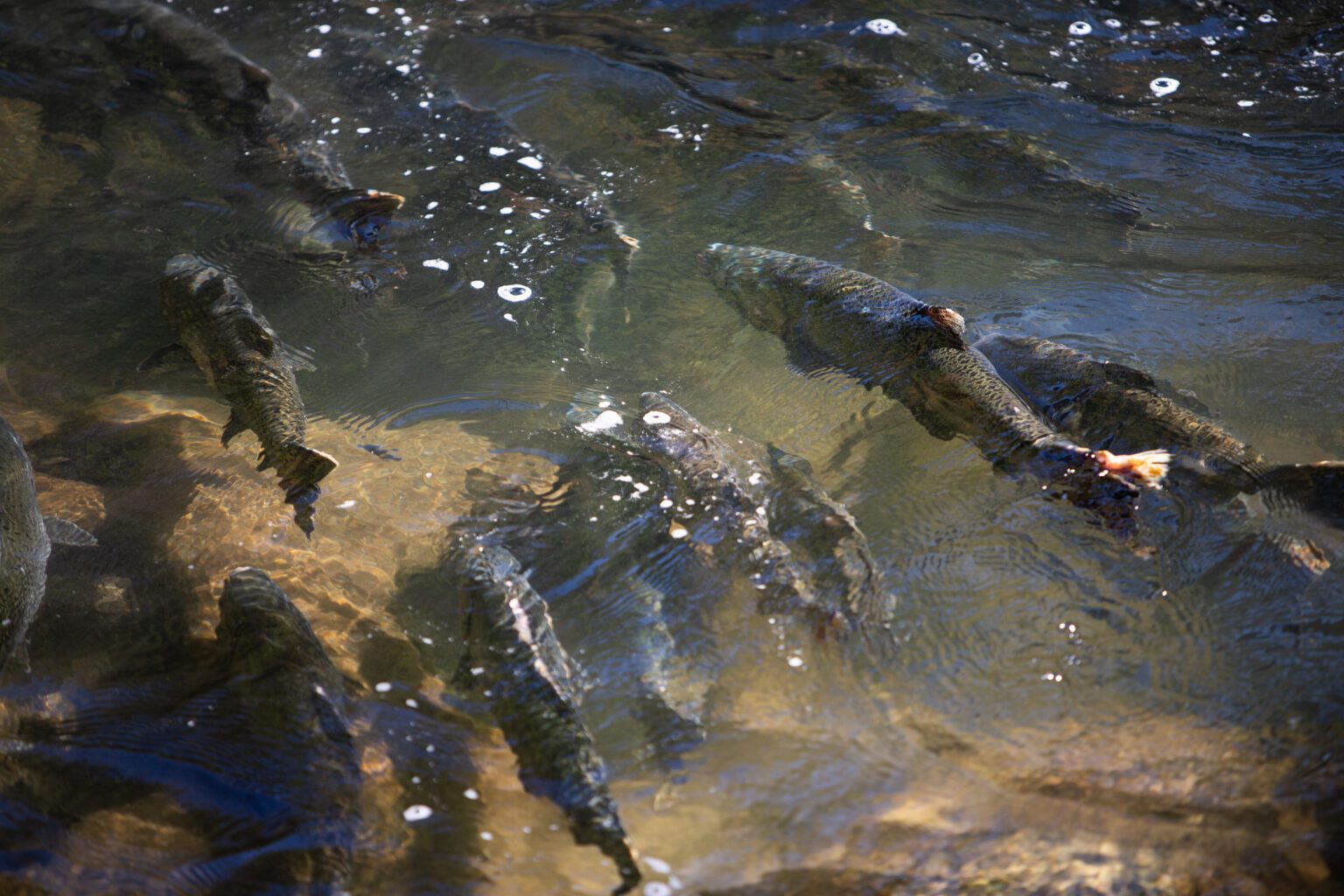Environmental regulation and climate change remain hot-button topics in Washington state, particularly as a midterm election inches closer.
November’s election, which will see five legislative seats filled in the 40th and 42nd districts, pits environmental interests against labor and agricultural stakeholders, with candidates split on support of previous legislative session measures.
The Lorraine Loomis Act, a key piece of legislation targeting dwindling salmon populations, is one of several controversial environmental bills that failed to pass out of committee last session, and continues to divide lawmakers and candidates on salmon restoration reforms.
The Act, proposed by Gov. Jay Inslee, required 200-foot buffers in riparian waterways, particularly in agricultural areas, to support habitat restoration for critically endangered salmon.
“Tribes have been asking the governor for a number of years to take some action to undo some of the habitat [degradation] concerns tribes have had, and adding riparian buffers was one of the things we’ve asked him to act on,” said Dave Herrera, a commissioner at the Northwest Indian Fisheries Commission and member of the Skokomish Tribe.
Herrera said the state has been working with tribes to develop a statewide riparian buffer standard since 2019.
“The Lorraine Loomis Act really came out of two years of meetings that tribal groups had with state agency representatives to try to develop and figure out how to implement that standard,” he said. “The act was that attempt to enact the standard and implementation on the ground.”
The bill was controversial and didn’t make it out of committee. The House version of the bill had nine co-sponsors, including Debra Lekanoff and Alex Ramel, both up for reelection this year.
Despite being a co-sponsor, Ramel said the bill needs more work, and key voices were missing from the discussion.
“I was a co-sponsor of the [Lorraine Loomis Act] last session, and I remain convinced that we have to do more to help our streams and rivers recover so that our salmon can recover,” Ramel said in a recent editorial board meeting with Cascadia Daily News. “We have to [do this] in a way that has the farmers and the landowners sitting at the table, helping us figure out how to do that.”
Ramel’s opponent in the race for 40th District state representative, Trevor Smith, did not return CDN’s request for comment.
Other candidates, including Democrats Alicia Rule, Joe Timmons and Sharon Shewmake, and Republicans Simon Sefzik and Tawsha Thompson, voiced similar concerns.
“We cannot put ourselves in a position to choose farms over fish, because they literally work hand-in-hand together,” Rule said. “The only way to solve this problem is working together. Our natural landscape does not care about our politics.”
Thompson, Rule’s opponent in the 42nd District race, said river management is critical in supporting future fish health, but farmers have great ideas about how to address environmental concerns, too.
Sefzik, running against Shewmake, said the bill would be “very, very damaging to agriculture in Whatcom County.”
“When we talk about environmental policy, we need to take action to address climate change,” he said. “But, we have to do so in a way that is responsible and doesn’t price people out of their homes or take people out of good-paying jobs.”
Shewmake, too, supports farmers and salmon advocates working together on future legislation.
“There are more projects that farmers want to do to restore salmon habitat,” she said during a tour of Nooksack Indian Tribe restoration projects in September.
Local agricultural groups shared these concerns with the Legislature when the bill was proposed in January.
“It just wasn’t a collaborative effort between everybody that would be impacted,” said Dillon Honcoop, the communications director of the Whatcom-based Save Family Farming organization. “Farmers would be the most impacted by the changes that kind of a plan called for, and they need to be a part of the conversation because they have a lot of things to offer, but they also have a lot of concerns.”
Though the bill failed to make it out of committee last session, Herrera was encouraged by the legislative decision, which included a budget proviso for additional conversations and meetings.
“That budget proviso provided funding to the governor’s office to try to bring together many of the interest [groups] around the legislation that felt they didn’t have any input or voice in developing the bill,” he said. “The bill didn’t come out, but the work keeps being done.”
Salmon populations in the Pacific Northwest are “in crisis,” according to Washington’s “State of the Salmon” report. Chinook populations in particular are dangerously low, and 14 species of wild salmon and steelhead are considered at risk of extinction under the Endangered Species Act.
Herrera isn’t sure about the future of the Lorraine Loomis Act but is encouraged by continued conversations about salmon health.
“It’s become clear, after more than 20 years of large financial investments into salmon recovery and severe restrictions on fisheries to try to protect the dwindling populations, that by themselves, those actions aren’t going to work,” Herrera said. “We need to increase the productivity of the habitat that supports those populations, and in order to do that, we need to protect the existing, good-functioning habitats such as riparian areas where we have them, and also require the restoration of habitat where we can get that. Without those habitat changes, I think we’re fearful we’re going to lose our treaty resources.”




